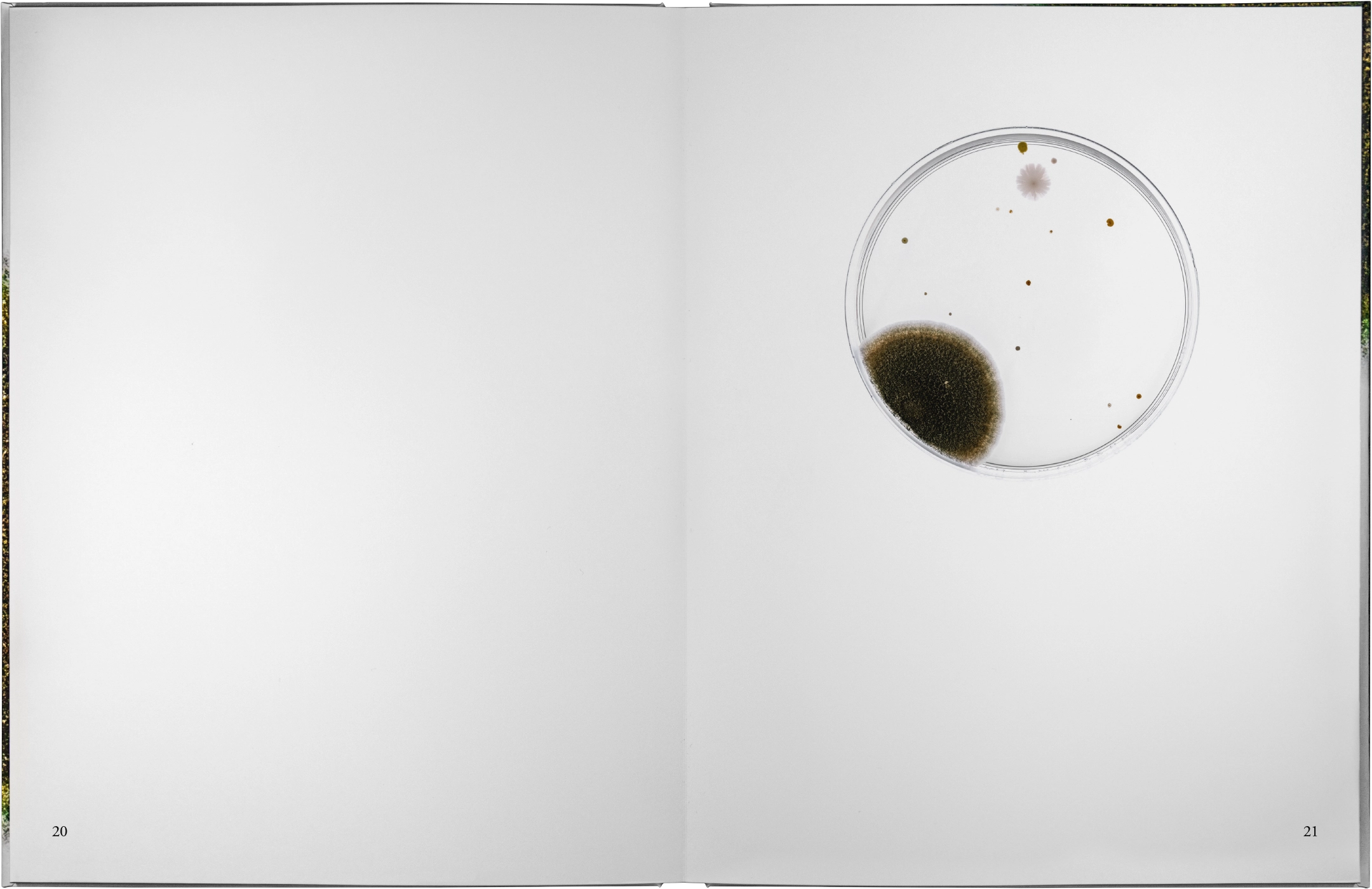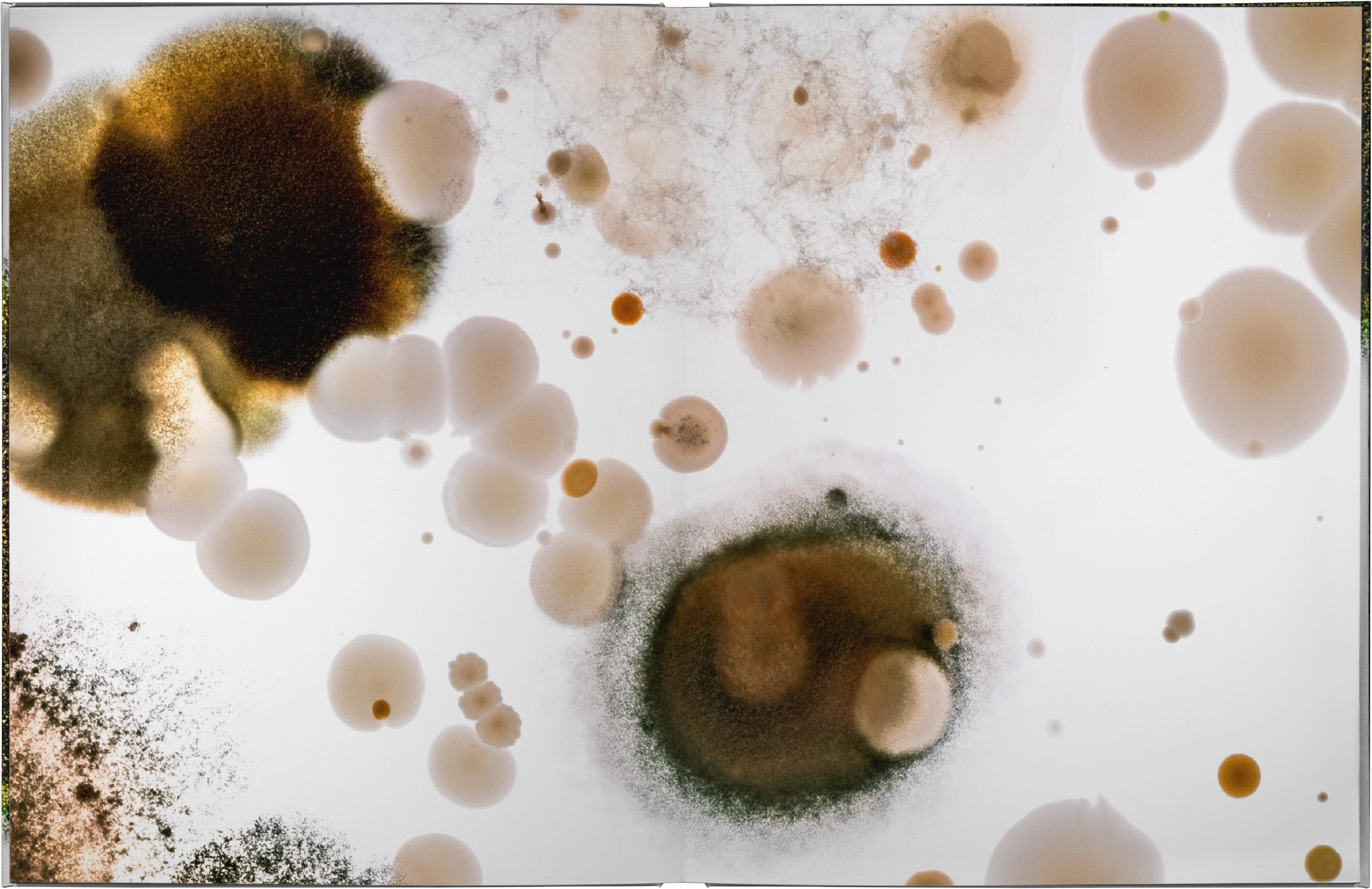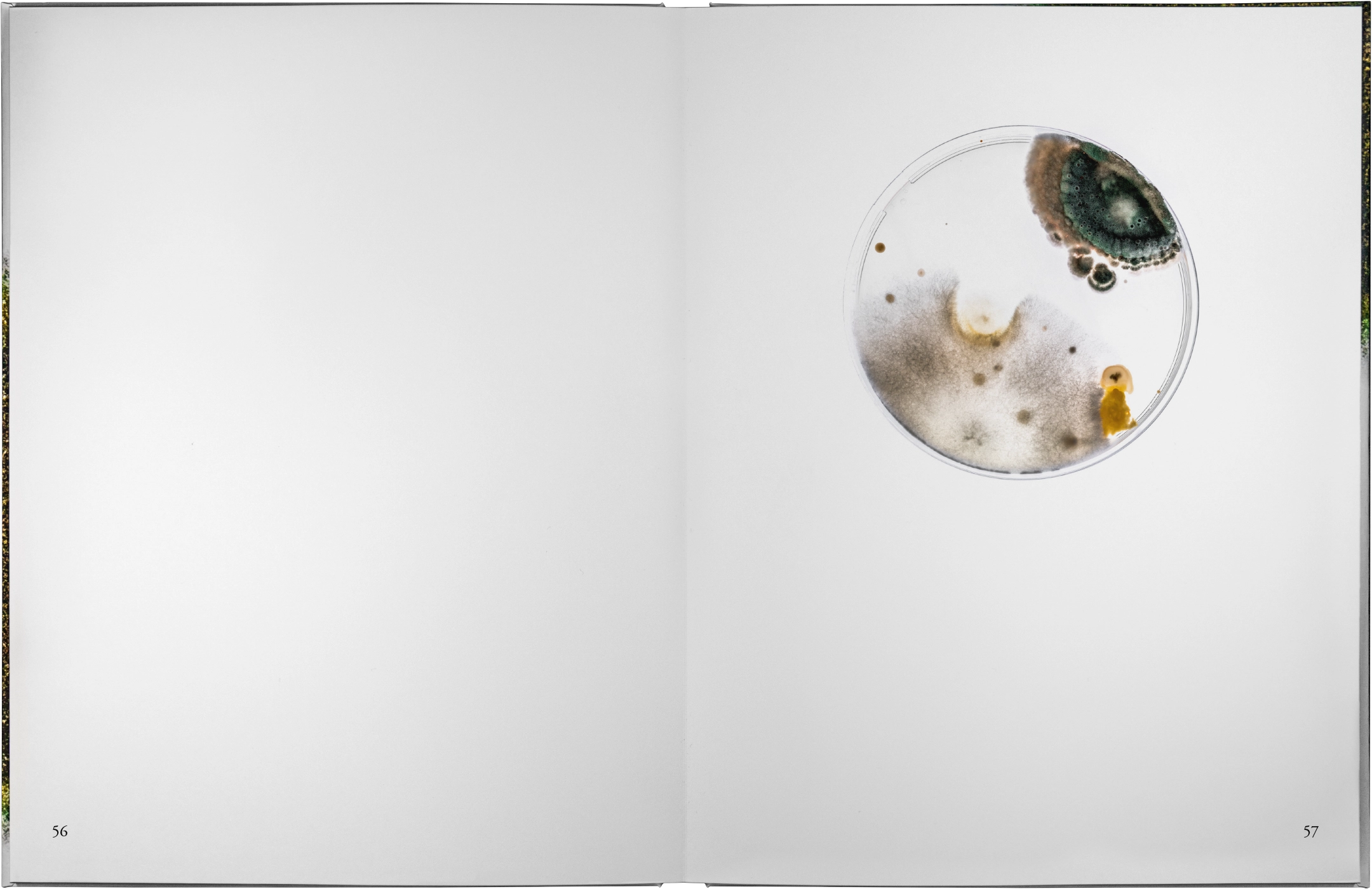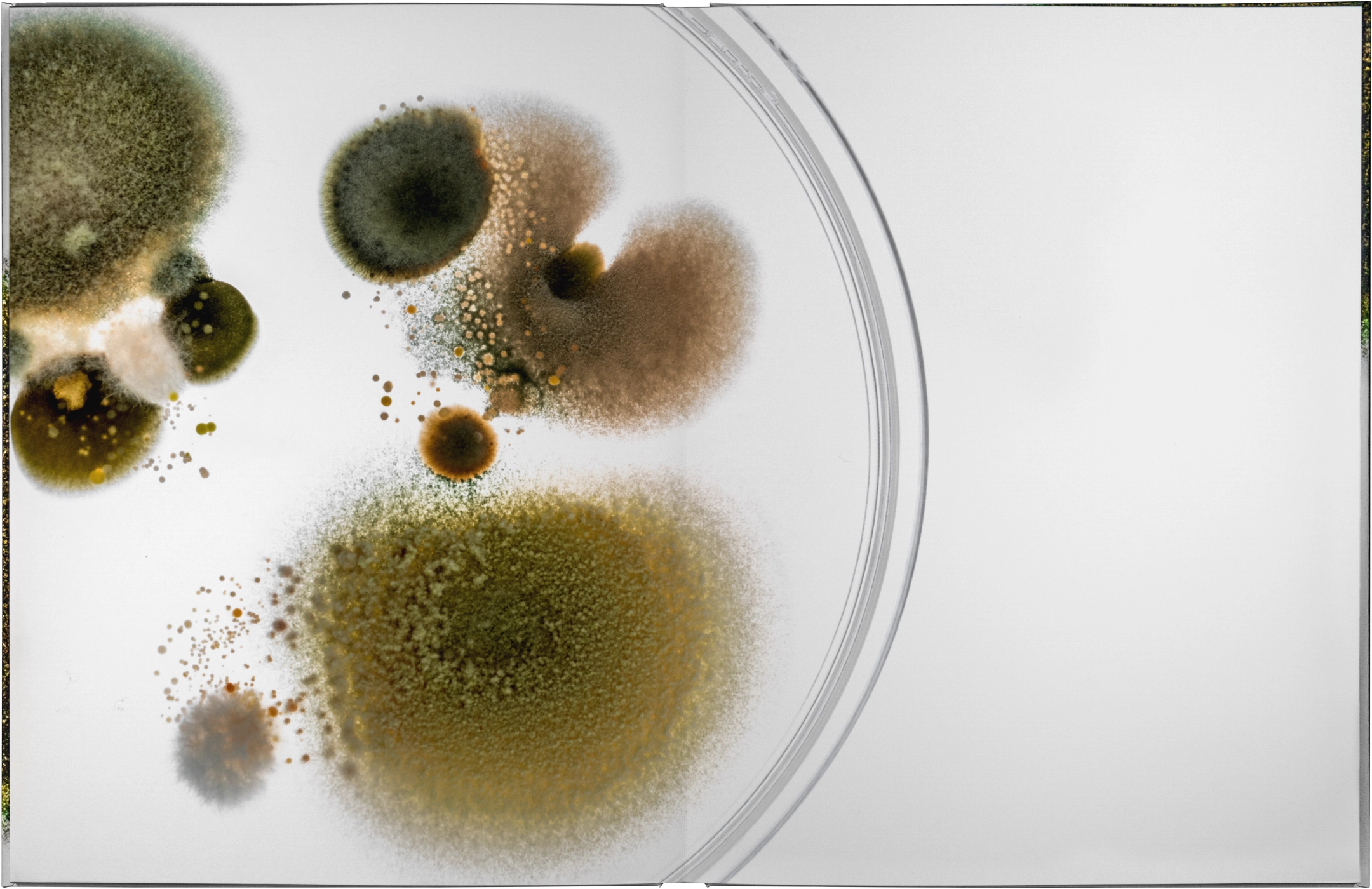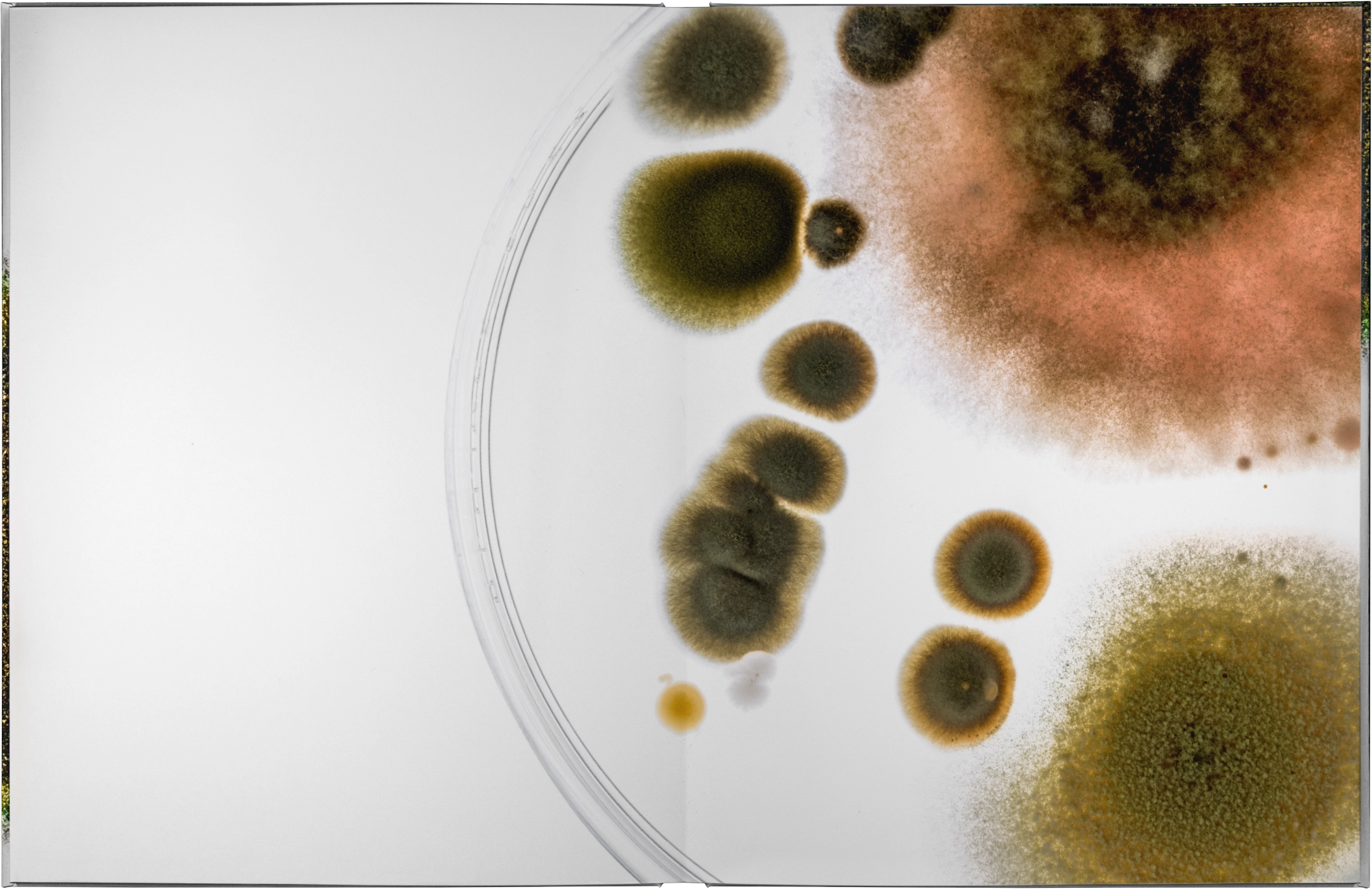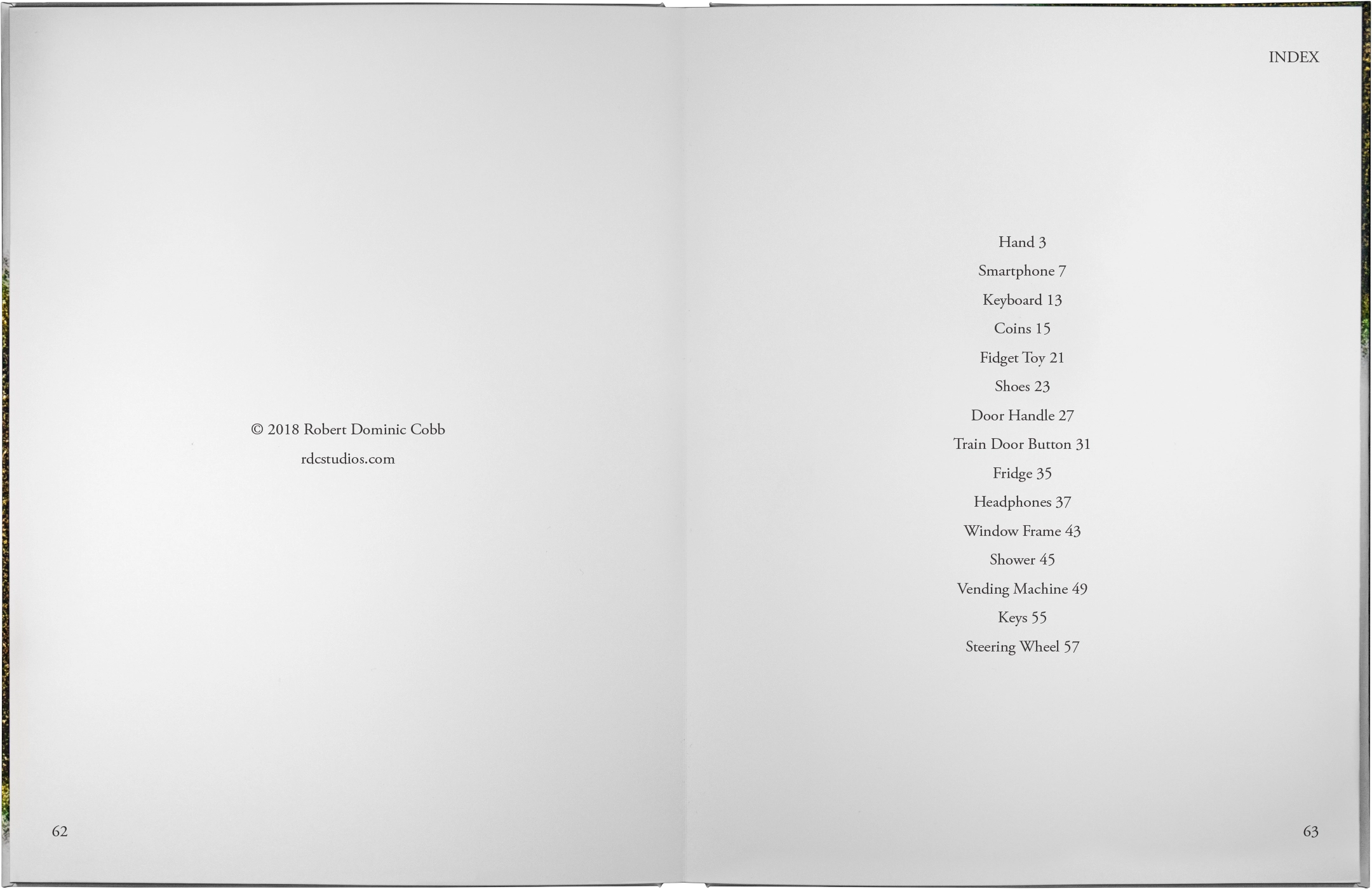We are always surrounded by billions of microbes, invisible to the human eye. Most of them are not dangerous or even beneficial to us, but some can cause fatal diseases. The photo series MICROBIAL PORTRAITS is a visual study of this invisible world: portraits of microorganisms.
For this project, microbial samples were collected from 15 different locations using a cotton swab. The origin of the specimens ranges from public places to a human hand. After collecting the samples, they were transferred to petri dishes for a period of incubation. Care was taken to distribute each colony evenly among the disc, to allow the microbes to form their own shapes and patterns. Depending on where the first particles of a colony fall, random and highly diverse structures can arise.
Many factors contribute to the outcome of the experiment, for example the environment in which a culture is grown. While aerobic organisms thrive in an oxygen-rich atmosphere, anaerobes cannot survive in such an environment. Some organisms reproduce faster than others, and different microbes require different growth mediums. Temperature also affects the results. For this reason, MICROBIAL PORTRAITS should not be considered an objective look at the microcosm, and the creative decision was made to not label the photos individually.
The work could be seen at the Düsseldorf Photo exhibition in February 2018. It was presented as both high-resolution prints and as a photobook. The book shows every disc in full view, as well as a close-up or detailed shot of each colony. This enables the viewer to not only experience the complete picture, but also the numerous details.
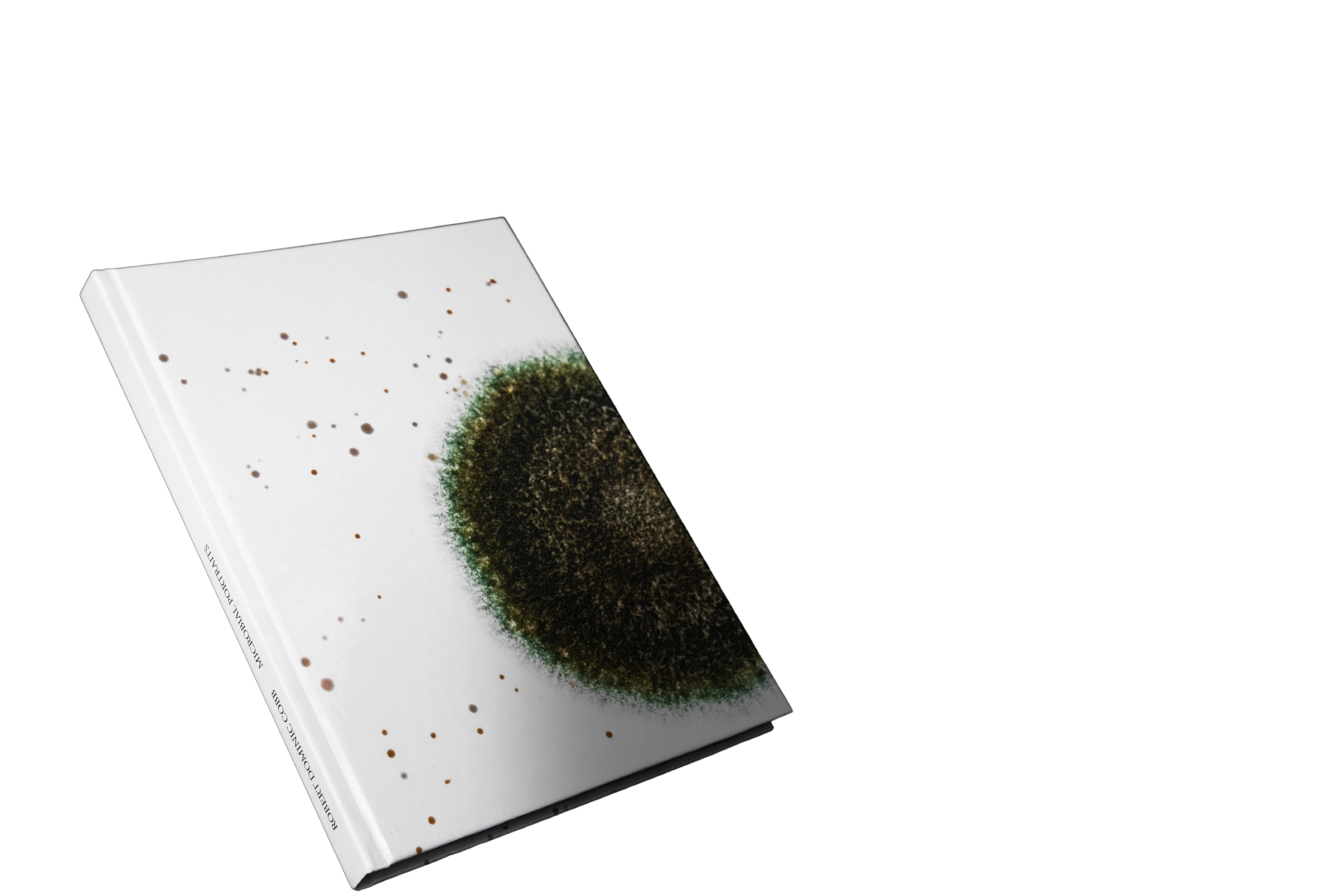
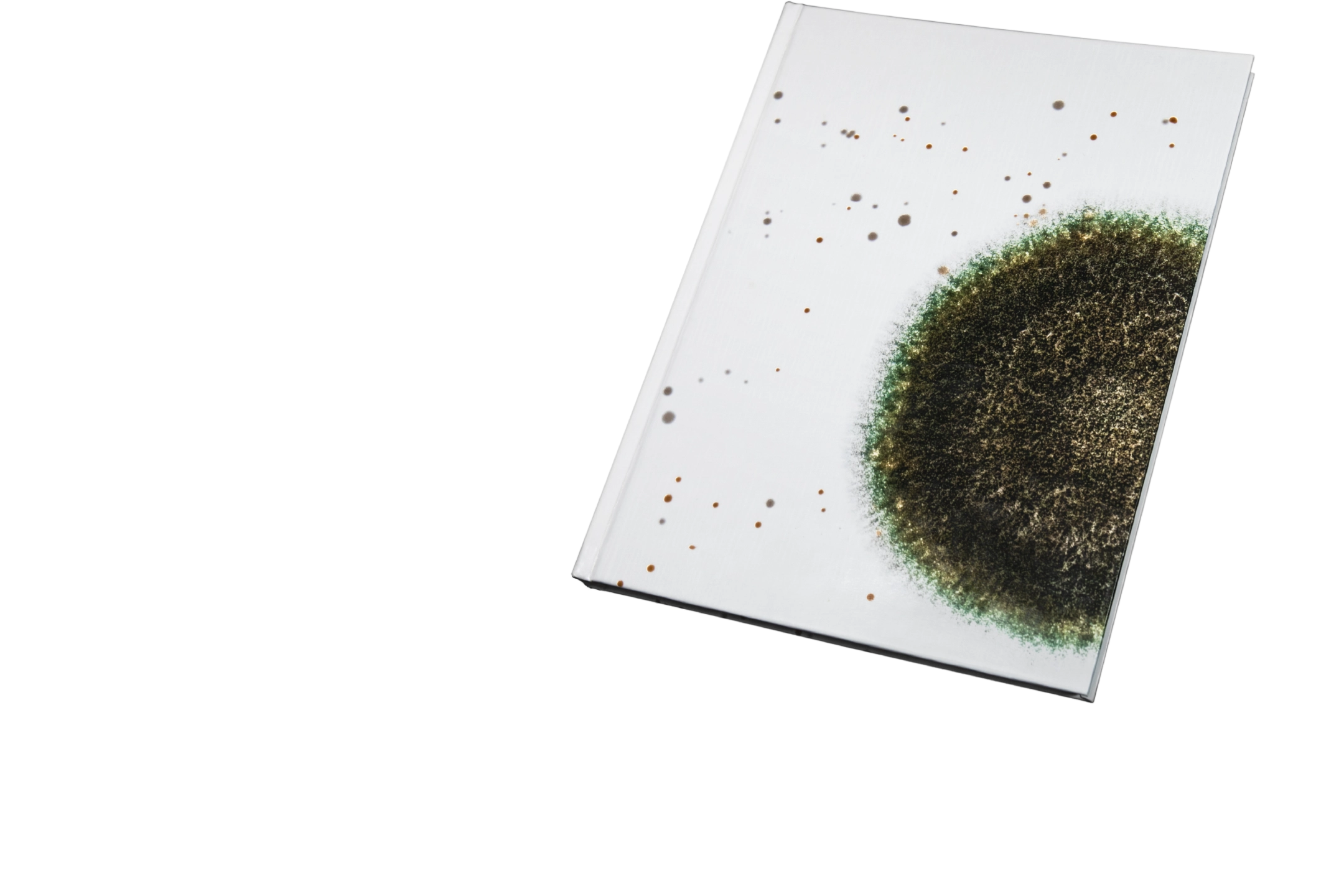
The choice of emphasizing the artistic aspect promotes a discussion on aesthetic appreciation and personal interpretation, rather than invoking the tendency to perceive the photos comparatively. However, to satisfy the viewer’s curiosity, the book features an index at the end that states where the samples were collected. The idea was to reveal the origin of the microbes only after the photographs have been viewed without explanation.
